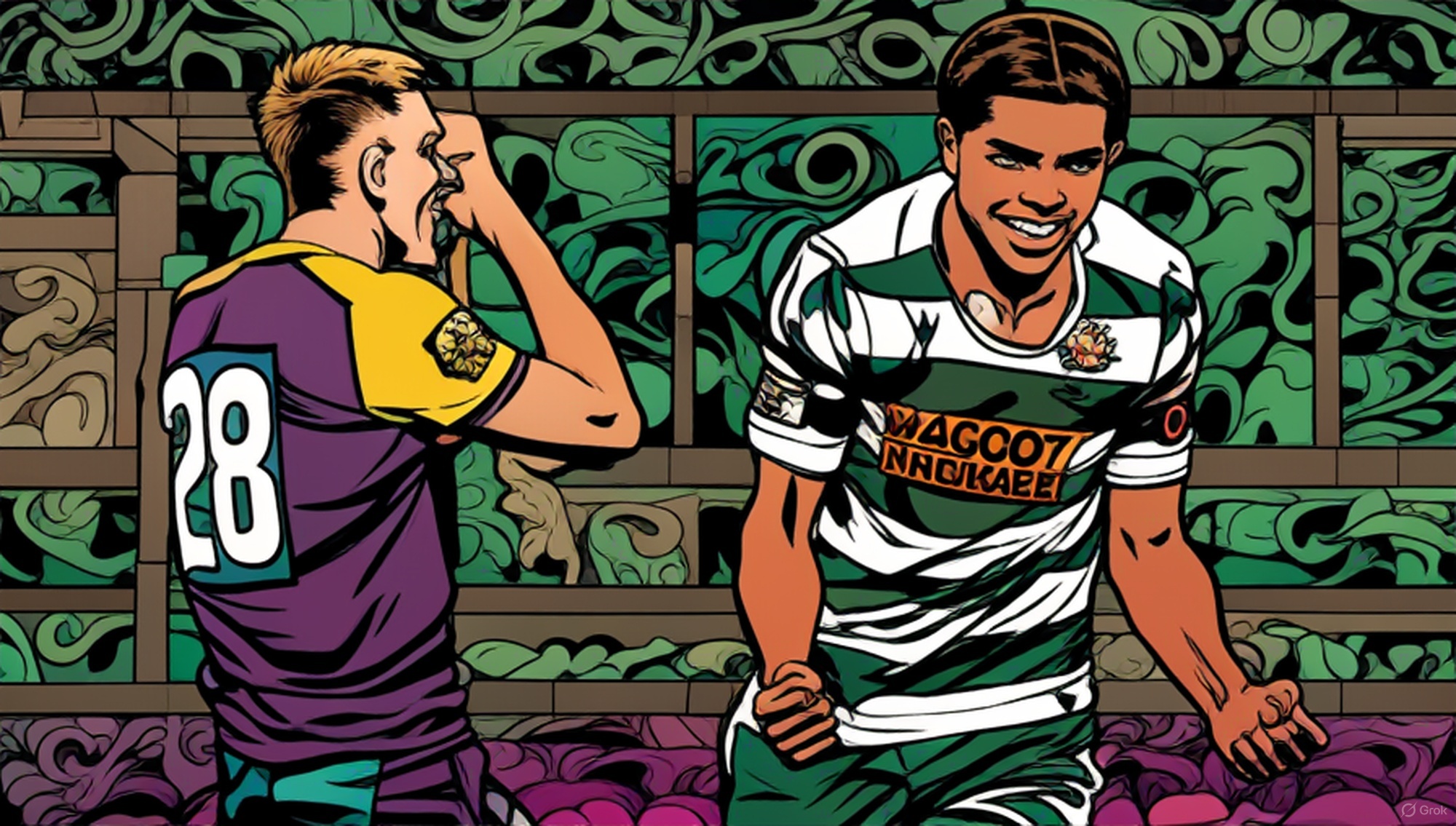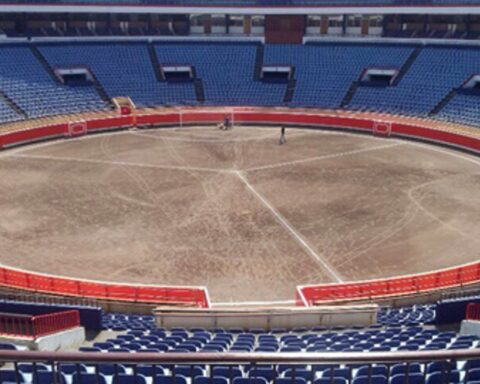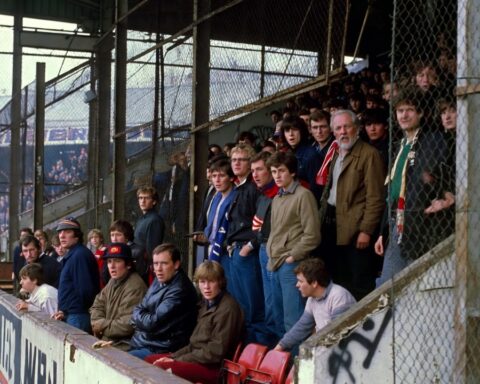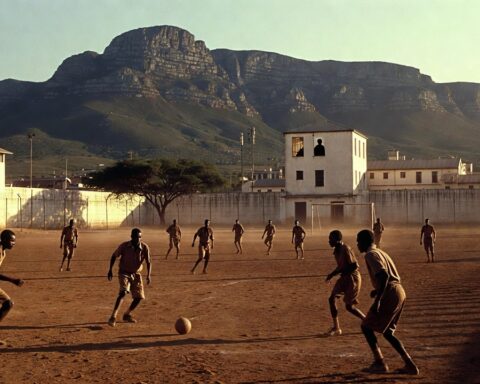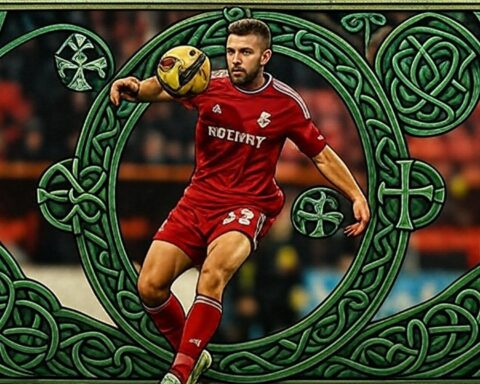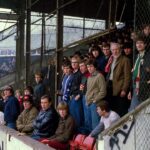There’s a low rumble in the Irish football underworld, a thunder gathering in the belly of the League of Ireland that’s threatening to crash into the global scene with the force of a rogue wave.
At the eye of this storm stands a 16-year-old phenom named Victor Ozhianvuna—equal parts silk and steel, a name now tattooed on the lips of scouts from Turin to North London.
He is, for lack of a better term, one of the the most electrifying young footballers Ireland has produced in a generation. And now, he’s on the cusp of a record-shattering move to Arsenal.
The numbers being whispered through the corridors of Shamrock Rovers are enough to make the ink quiver in a football writer’s pen—somewhere north of €2 million for a teenager who’s barely old enough to drive.
But Victor isn’t just a prospect—he’s a signal fire, a glowing testament to the quietly revolutionary work being done in Irish academies, places that once resembled semi-professional boot camps and now feel more like talent factories humming with modernity.
Dublin’s Diamond
Ozhianvuna’s story reads like the script of a gritty sports documentary. Born in Dublin to Nigerian and Russian parents, he cut his teeth in the back pitches of Tallaght, where talent is common but belief is rare.
What separated Victor wasn’t just his athleticism (which is ferocious) or his technical ability (which is frighteningly polished)—it was his clarity of vision, his unflappable cool.
Watching him float past defenders is like seeing a teenager perform open-heart surgery with a toothpick—risky, absurd, but inexplicably successful.
In a recent FAI Cup fixture, he ran riot against Wexford FC. At 16. Dictating tempo. Spinning defenders like they were mere obstacles in a training cone drill.
Scoring. Assisting. Smiling. It was less a match and more a monologue. “He’s scary,” one coach muttered post-match. “You forget he’s still technically a child.”
London Calling
The big guns have taken notice. Arsenal, with their growing catalogue of precocious playmakers and post-Wenger flair, are reportedly finalising a deal that would make Ozhianvuna the most expensive export in Irish football history.
There’s a poetic symmetry to it: an Irish-Nigerian wonderkid heading to a club that nurtured Saka and nurtures dreams.
Sources inside Shamrock Rovers say the deal is “imminent,” and the mood is bittersweet. Stephen Bradley, Rovers’ manager and something of a father figure to Victor, has publicly confirmed the intensity of the interest.
He looks proud—but also, understandably, a little heartbroken. “He’s part of this family,” Bradley said recently. “But the game is calling him to something bigger.”
It’s not just Arsenal that was circling. Borussia Dortmund sniffed around. Inter Milan placed polite inquiries.
Red Bull Salzburg—always early to the feast—sent a scout. But Arsenal won the war with a compelling mix of cash, culture, and a developmental track record that’s become the envy of Europe.
Talent in the Trenches
Victor’s story isn’t just a one-off lightning strike. He is the leading light in a golden generation emerging from the rain-slicked, floodlit pitches of the League of Ireland.
Forget the clichés of semi-pro slogs and pint-sized crowds—the academies of clubs like Shamrock Rovers, St. Pat’s, and Bohemians are rapidly becoming European scouting grounds, factories producing precision-tuned footballers with the grit of street players and the polish of continental technicians.
RTE’s recent documentary on the League of Ireland youth system peeled back the curtain on the transformation. Gone are the days of kits being washed in bathtubs and nutrition plans consisting of “whatever’s hot and beige.”
Today, the structures rival those in Belgium and the Netherlands. Investment, UEFA compliance, and belief—finally, belief—have turned Ireland into an unlikely cradle of modern football.
Irish players are starting to make noise in European U17 tournaments and catching the eyes of clubs far beyond these islands. Ireland’s qualification for the U17 World Cup in Qatar felt less like an anomaly and more like the beginning of a new era.
Grace Under Fire
Of course, it hasn’t all been golden boots and champagne promises. Victor’s rise has had shadows. Earlier this year, he was subjected to vile racial abuse during a league match—an ugly reminder that football, even in its most progressive pockets, still wrestles with its demons.
Bradley, visibly shaken, spoke candidly about the incident: “For a 16-year-old to hear that… it’s sickening. He didn’t deserve it. No one does.”
But true to form, Victor responded with grace. He spoke softly to reporters. He trained harder. And then he delivered on the pitch—again and again—his boots doing the talking, his game delivering a message more powerful than any press conference could.
A New Chapter
What happens next is part fairytale, part crucible. The Premier League is no nursery. Young players are fed into the machine with promises of stardom and spat out when the glimmer fades.
But Ozhianvuna feels different. He has the resilience, the patience, the low heartbeat required to make it. Arsenal won’t rush him.
The plan, insiders say, is slow integration—maybe a loan, maybe U23s for a while. But make no mistake, he is being groomed to play under the Emirates lights.
And for Irish football, his success could be seismic. Not just financially, though the numbers involved are game-changing. But symbolically.
A message to young ballers from Limerick to Lucan: there is a way. You can make it out without going to England at 14 and washing boots in the lower leagues. You can stay, grow, dominate—and then go. On your terms.
In the end, what makes Victor Ozhianvuna so captivating isn’t just his potential. It’s the poetry of it all.
A boy from Dublin with Nigerian roots, dancing through defences on grey Irish nights, now bound for the lush, roaring cauldron of the Premier League.
There’s a touch of myth about it. A pulse-quickening sense that something very big is beginning.


